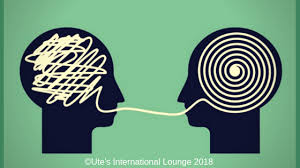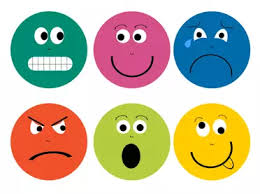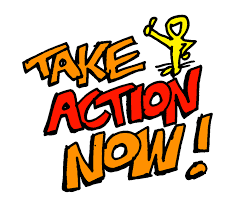Introduction
Effective communication in the workplace is important for good cooperation and good results. On the other hand, poor communication will negatively influence the atmosphere and results. It can lead to conflicts at work, misunderstandings, unnecessary mistakes, mutual irritation and reproach, declining job satisfaction and dissatisfied internal and external customers. Nothing good comes from it.
No attention

It is therefore remarkable that within organizations there seems to be relatively little attention to good communication between colleagues within teams and between departments. I will follow up with an example and then will give you 9 situations to avoid in order to more effectively communicate.
Issues with communication? Start making money on the side and prepare for an exit. See the last paragraph with a unique opportunity!
I said that already! Why did you not understand?
Do you and your conversation partners actually understand each other well? You need to be aware that the words you use can mean something different to your boss or colleague. We are nevertheless not geared up to do something about these kinds of vague concepts, with all their dire consequences. Here is what I am talking about.

Example
Two colleagues of mine were busy developing a certain measuring instrument. After a number of work sessions, it was almost finished. The only thing they needed was someone who would assess the quality of that instrument with a fresh perspective. I seemed to be the ideal candidate for this.
“Jerry, can you give feedback on a quantitative measuring instrument?” they asked me enthusiastically. I must have stared at them with a glassy look. “Uuuuuh .. well no, I have no idea how to do that.”
Misunderstanding
Not much later, I heard them discuss this same measuring instrument. They wondered out loud whether they had formulated the questions properly and whether they were achieving their goal. “Oooooh, but you just want me to check if your questionnaire is scientifically correct? Whether you do good research? ” I said. Yes, we meant that indeed. “If that is what you meant, then I certainly can do it!”
What went wrong?
The above story is a classic example of miscommunication. When we say something, we automatically assume that the other person knows exactly what we mean by certain words, while this is often not the case at all. The assumptions you have for a certain term are different for everyone.
That I thought I could not help them had nothing to do with my abilities. This  was simply because we both understood something different by “developing a quantitative measuring instrument.” Based on my assumptions, I concluded that I knew nothing about it.
was simply because we both understood something different by “developing a quantitative measuring instrument.” Based on my assumptions, I concluded that I knew nothing about it.
Misconceptions
So, here is the thing. You often do not talk about the assumptions you make when speaking a certain word. And that is precisely what goes wrong very often in mutual communication (how often is very often?).
Now suppose your boss says “this year we will improve our customer relationship experience and we will focus on internal cooperation.” And believe me, many people talk like that. Well, what is “improving” and what does he mean by “customer relationship experience”? Let alone how many different interpretations you can give to the term “focusing on internal cooperation”!
Imagine this: you spend a whole week on a comprehensive plan for that so-called “customer relationship experience”, to find out at the next meeting that this only meant that you would send birthday cards to your customers (lol).
Get clear assumptions
The best solution for this type of miscommunication is: prevent assumptions and define the terms that you use. Do not be afraid to keep asking questions until you know what you expect from each other. If you want something from someone else, make sure you explain this as concretely as possible.
Furthermore, increase your professional communication skills by avoiding these communication mistakes. Here is a list of the 9 most important communication errors in the workplace and tips on how to deal with them.
1: Being completely focused on your own story
 In the conversation you are completely focused on telling your story your way. You forget to understand the whole story and opinion of the other person, resulting in resistance and irritation in your conversation partner.
In the conversation you are completely focused on telling your story your way. You forget to understand the whole story and opinion of the other person, resulting in resistance and irritation in your conversation partner.
Instead, try to be more open to the other person’s opinion and the way the other person communicates. What understanding does your partner need to in turn understand you? More space in the conversation? Other arguments?
2: Using words that undermine your story
The words you use can reinforce or downright undermine a story, such as: “You may not like the idea, but maybe I can present it to you anyway?”
It is better to avoid words such as, perhaps, diminutives and sentences that express submission. You automatically give your conversation partner the power to say that the idea is indeed nothing or that he “has no time for the moment”. Shame, because your ideas could be very valuable.
3: Lacking empathy
In a business conversation you not only have to deal with the actual content, but emotions also play an important role. Discussion partners are sometimes sad, annoyed, angry, happy or feel powerless. Use your empathy and try to put yourself in the other person’s situation and position. The conversation will be a lot more relaxed and effective.
4: Assuming you know what the other person means
You’ve probably experienced it yourself when someone interrupted you  impatiently and finished your story, while you meant something completely different. Very annoying!
impatiently and finished your story, while you meant something completely different. Very annoying!
No one can read thoughts. Therefore, do not assume in advance that you know what the other person is going to say. Let people talk, listen sincerely and keep asking. Who knows, you may be surprised by a good idea or an interesting opinion.
5: Communicating disrespectfully
You enter a colleague’s room who is busy texting. “Sure you can ask something, I have to finish this message, but I can hear 2 things at the same time,” replies your colleague without looking up. Yes Yes…..
Do you feel taken seriously? Appreciated? In a conversation, people like to have the other person’s sincere attention. It seems like an open door, but who hasn’t even made such a mistake in a conversation?
Interrupting someone, not making eye contact, being on your phone, misplaced humor, looking over someone’s shoulder, talking about yourself all the time, pulling the other person’s story towards you (“Oh yes, I’ve experienced that too.” ). All communication inhibitors that you can better avoid.
6: Brushing someone off
Attack someone personally, completely destroy an idea, berate someone, downplay an opinion. All good methods to brush someone off and to destroy the mutual relationship. If you want to cooperate constructively with someone, talk from yourself and only give feedback on the behavior that you find disturbing instead of attacking someone personally. Take someone seriously, even if you don’t share their opinion.
7: Hurrying colleagues or employees
Impatience is often a strong emotion that others quickly sense. Who doesn’t know a colleague who can hardly bear the patience to listen to you or a manager who is not aware of his rushing leadership style, where everything has to be done quickly. It can paralyze colleagues, make them feel stressed or feel rushed, causing them to perform less.
Are you impatient or do you know you look impatient? Control that emotion for better contact and collaboration with your conversation partner.
8: Let your emotions in the conversation guide you
 You feel the anger creeping up from your toes until you feel like you can explode from envy. Your colleague again does not keep to her agreements, your manager lets other managers overcome him. And therefore you cannot do your work. Grrr….
You feel the anger creeping up from your toes until you feel like you can explode from envy. Your colleague again does not keep to her agreements, your manager lets other managers overcome him. And therefore you cannot do your work. Grrr….
We have all been so angry that we prefer to scold the other person on the spot. Unfortunately, this often results in damaging the relationship with the other person in such a way that collaboration becomes impossible.
The trick is to keep control over your emotions instead of your emotions directing you. Sit back and think about what you can do in the conversation to look back on a constructive conversation afterward. This way you can look at the conversation with more distance and get the conversation going again.
9: Not communicating assertively
You want to do everything for everyone and saying “no” is difficult for you. You work your way around to get your work done and your colleagues don’t understand that you’re very busy and can’t always get it all done on time.
Do you want to be a colleague who is respected and comes across as reliable? Set your limits by setting your priorities and doing expectations management. Communicate clearly about what you can and cannot do and when. By communicating assertively, people know what to expect from you.
Final thoughts + recommendation
Good communication is not a given, sometimes you have to make an effort by thinking carefully about what you say and how you say it. Continuing to pay attention to the development of your professional communication skills will provide you with a more pleasant and relaxed contact with your partners and better cooperation. You no longer make these 9 communication mistakes. Nice is it not?

I know this is all easy to say, but in practice, we oftentimes fail, simply because we are humans. We will be making mistakes every day. If you are in a position where your boss is the daily culprit, then you are not to be envied. It is not that you can show him this list and ask him or her to act accordingly. Has this been going on for some time? Then take action.
I recommend you start making money on the side and prepare your escape from the corporate jungle. I have published a review of a life-changing opportunity, that everybody can pursue. It can be accessed by clicking here.


Hey thank you so much for the tips. I really have learnt a lot from here. You know, my mum used to tell me that the way you are addressed is not basically hinged on how you are dressed but on how you are able to communicate. Some people have very good communication skills while others are very bad at it. It’s nice that you use real life situations to exemplify. I have to share this post.
You are very welcome to share this article. And yes, first looks can be deceiving, it is always better to communicate first. Did you know that communication is done three-ways? Words, body language and intonation, where words contribute a mere 8% to the total. So, next time somebody asks you: What did I say? Don’t fall for that trap. It was probably the body language and intonation that bothered you.